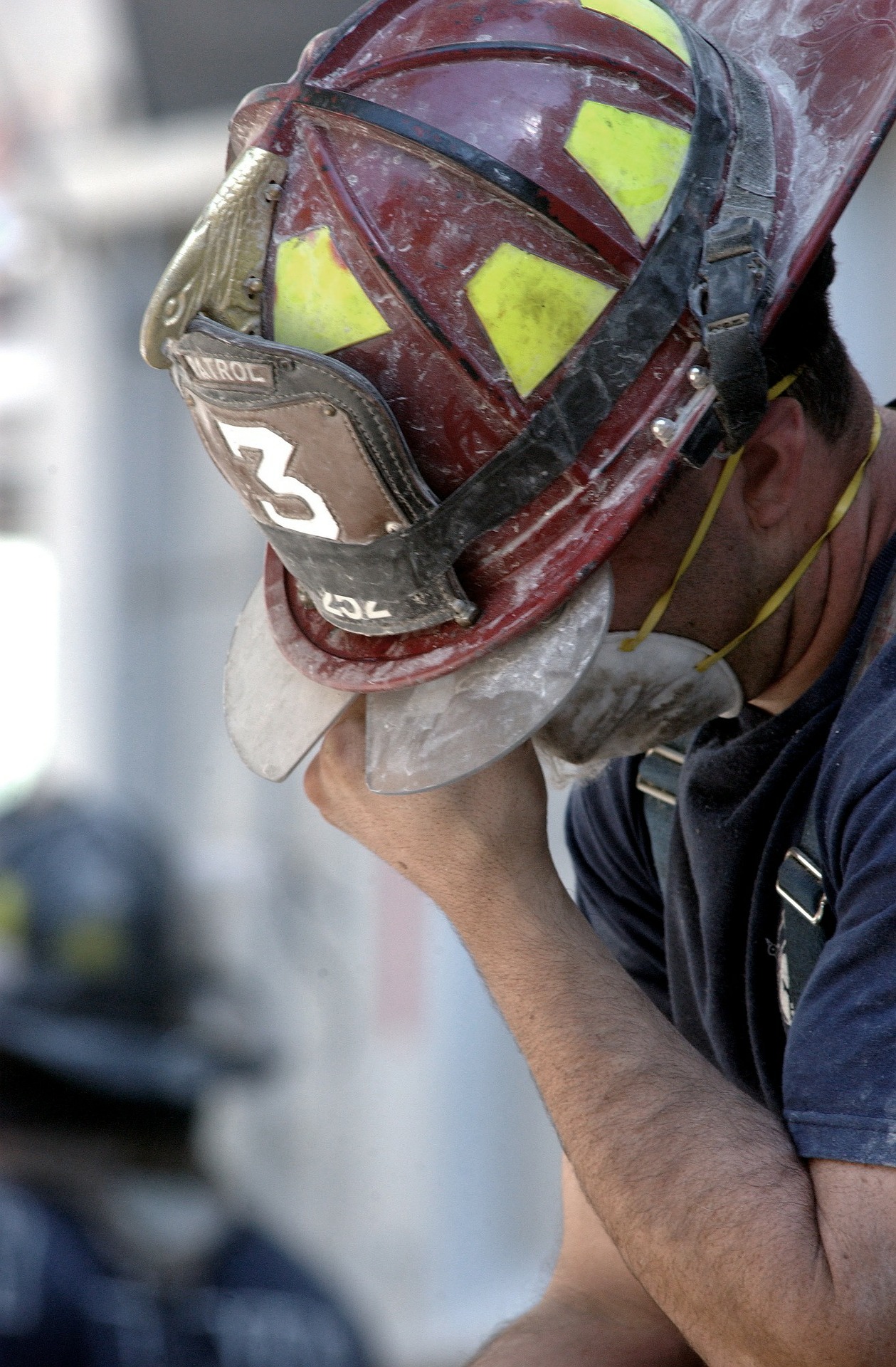9/11 Remembrance – Continuing to Honor Our First Responders
By Kellie Hale
 Where were you that September day? For me, I was getting ready for school. I was only in my second week of high school, so I was around 14 years old at the time. As I was putting on makeup, I hear my mom crying. She mentioned something about a plane crashing into one of the World Trade Centers in New York. Honestly, I didn’t pay too much attention to her at the time because I didn’t want to be late for school. Unfortunately, it wasn’t until I got to school where the teacher had the television on one of the news stations. I don’t think any of my classmates at the time understood the significance of this event and how it would change our lives. We were too young to grasp the concept that this was a terrorist attack on the United States on our home soil.
Where were you that September day? For me, I was getting ready for school. I was only in my second week of high school, so I was around 14 years old at the time. As I was putting on makeup, I hear my mom crying. She mentioned something about a plane crashing into one of the World Trade Centers in New York. Honestly, I didn’t pay too much attention to her at the time because I didn’t want to be late for school. Unfortunately, it wasn’t until I got to school where the teacher had the television on one of the news stations. I don’t think any of my classmates at the time understood the significance of this event and how it would change our lives. We were too young to grasp the concept that this was a terrorist attack on the United States on our home soil.
Now it has been twenty years since that fateful day. I’m twenty years older now. I have a better understanding of the effects that day created. When I was just a green-eyed freshman, I never thought I would be immersed in the world of emergency management or homeland security. Sometimes the paths we take are unexpected but turn out to be important ones to take.
One of the lasting impressions 9/11 had on me was how it showcased the importance of our first responders. How many emergency workers in New York City responded to the World Trade Center? The answer is 412. Many of those emergency workers included firefighters, police officers, emergency medical technicians and paramedics, court officers, patrolmen.
Those who survived continue to live with long-lasting mental and physical health ailments such as post-traumatic stress disorder (PTSD) and cancer (prostate, leukemia, and thyroid) from the toxic dust from the rubble of the Twin Towers at Ground Zero. There are even reports of how some 9/11 first responders are experiencing rapid cognitive decline such as dementia and even suffer from seizures.
For years, first responders and survivors had to lobby Congress to receive compensation for injuries sustained from 9/11. Sadly, many died due to 9/11-related illnesses during advocacy to receive their fair compensation. It is also important to note that many first responders were injured in the days after 9/11 while still trying to locate possible survivors amidst the Twin Tower rubble. Unfortunately, when the Bush Administration established the September 11 Victim Compensation Fund (VCF), it only assisted those injured within ninety-six (96) hours after the attack. This excluded many first responders. By 2011, the VCF was reactivated under the Obama Administration by signing the James Zadroga 9/11 Health and Compensation Act. President Obama reauthorized the VCF again in 2015.
When the James Zadroga 9/11 Health and Compensation Act was set to expire in December of 2020, President Trump signed the Zadroga Reauthorization Act into law. The third reauthorization will make funds available for the first responders and survivors until October 1, 2090.
As Americans commemorate the 20th anniversary of the 9/11 terrorists, it is the perfect time to connect and share our thanks to the heroic efforts of first responders and even survivors. First responders deserve to be recognized, not only on 9/11 but every day. They are willing to put their life on the line, to sacrifice for the greater good, and are committed, heart and soul, to aiding and protecting others.
We could all learn something from first responders to step up and take action during an emergency to help those in need. So, be sure to take the time to thank a first responder, not only on 9/11 but every day. They deserve it. They more than earned it.
Thank you!

